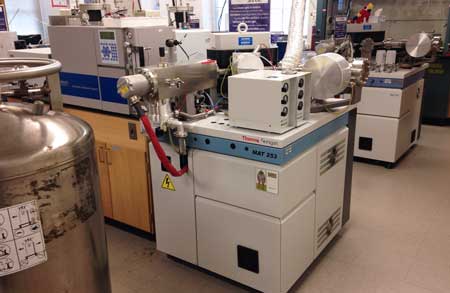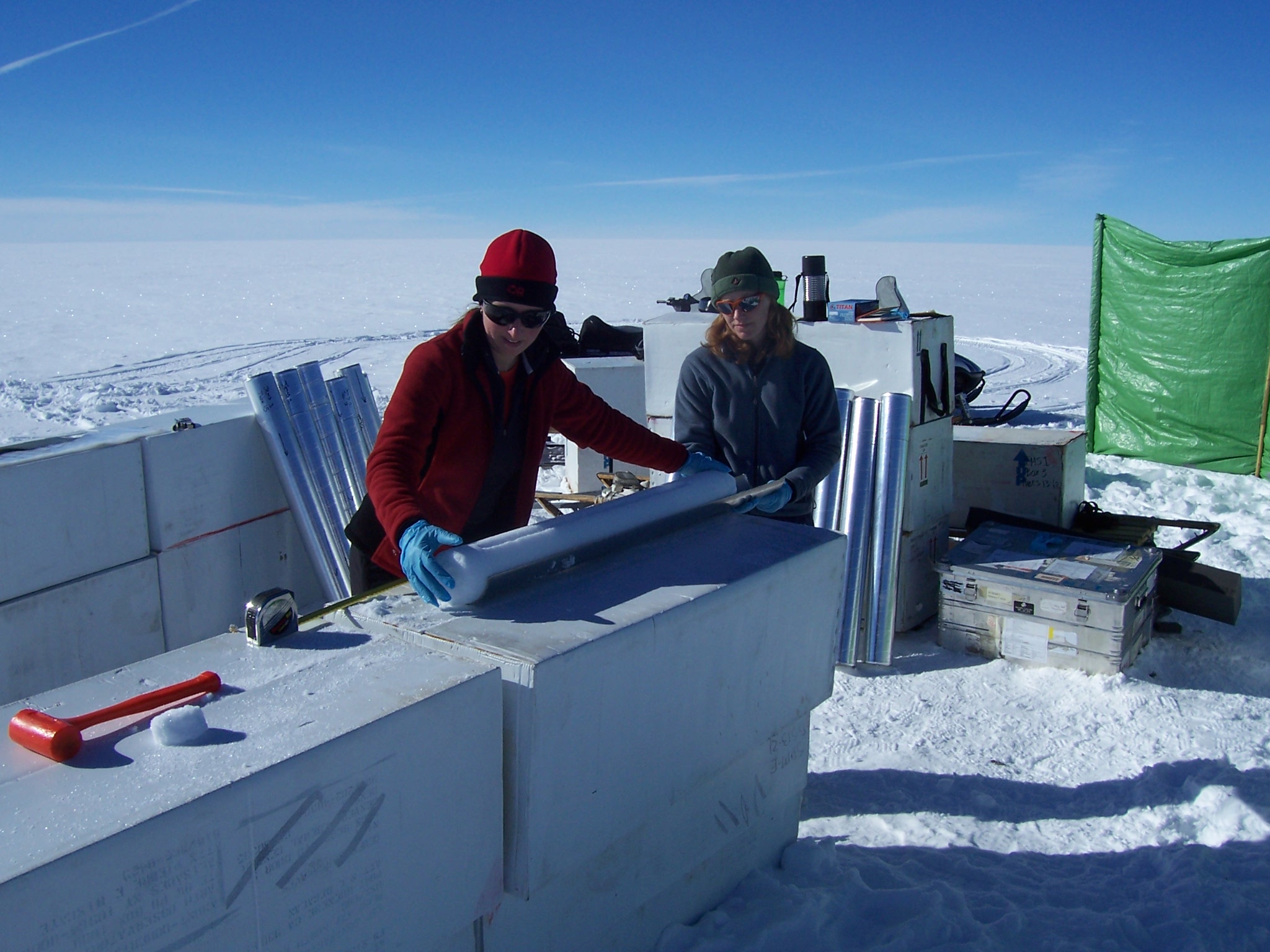Δ*IsoLab
Δ*IsoLab is one of premier isotope geochemistry facilities in the country, thanks to our collaborative model and the support of our superb technician Andy Schauer (who is also manager), along with numerous undergrad and post-grad assistants, grad students, and postdocs. Isolab is a shared facility founded by professors Eric Steig and Roger Buick, and soon joined by Peter Ward (joint ESS/Biology professor), and Becky Alexander in Atmospheric Sciences, then Andrew Schauer and Kate Huntington. Roger Buick currently serves as Director of our five-person Steering Committee. Together, we use light stable isotopes (meaning the isotopes of carbon, nitrogen, oxygen, sulphur, and hydrogen (CNOSH)) to study the geosphere, atmosphere, hydrosphere, biosphere, cryosphere, atmosphere, and even other planets through the UW Astrobiology program.
Support for Δ*IsoLab is almost exclusively from research grants (NSF, NASA). Δ*IsoLab long been an invaluable for hundreds of faculty colleagues, postdocs, and students at the University of Washington, and beyond. Research led by the Steering Committee takes precedence because its members ensure continuous funding for the staff, equipment, and supplies, but we are always open to collaboration. See our central lab web pages for more information on working with us.
There's a nice little write-up about our lab, and its long history, on the College of the Environment news page.
Fun fact: Many of the instruments in our lab are named after characters from books by Eric's great uncle, William Steig. We have Shrek, Dr. Desoto, Gorky, and Brave Irene. Sadly, Amos and Boris were both given to other labs (but they remain in good hands in Boulder and Bellingham). We have also named one of our laser spectroscopy instruments after the amazing (and too little known) pioneer in biochemistry, Mildred Cohn. She is worth looking up!
About our logo: The Δ and * in our logo represent the things we love (mountains and snow), the things we study (glaciology, astrobiology, climate, chemical reactions ...) and the tools we use to study them -- isotopes, conventionally expressed in "delta" notation, where the asterisk can represent any of various numbers (e.g., Δ17O, δ13C). The name isn't short for anything; it's just a name I made up. (By the way, it's "IsoLab", never "The IsoLab". You wouldn't say "The NASA", would you?)



